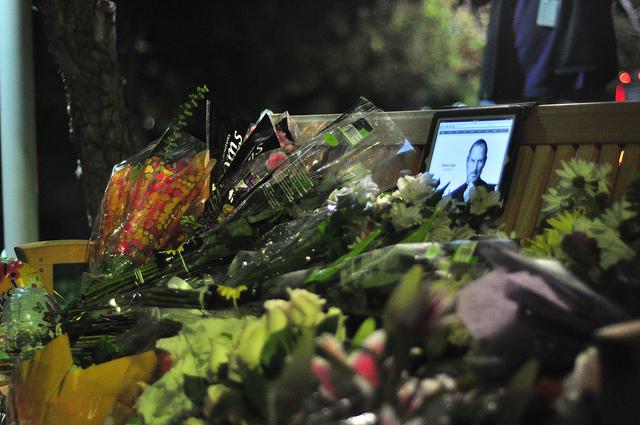
“No one wants to die. Even people who want to go to heaven don’t want to die to get there. And yet, death is the destination we all share. No one has ever escaped it, and that is how it should be, because death is very likely the single best invention of life. It’s life’s change agent. It clears out the old to make way for the new.”
Those are the words that Steve Jobs said in his famous 2005 Stanford Commencement Address. Little did we know what he was foreshadowing. On Oct. 5, Apple Inc. released a statement that announced that Jobs had passed away due to respiratory problems.
Many students were left shocked. While his health had been waning due to cancer, he had been fighting valiantly against it. How could this happen? What’s next for Apple Inc.? What’s next for Cupertino?
His legacy and his work has been permanently embedded in to minds of all the citizens of Cupertino. To us, he was a hero, an internationally recognized leading figure in the ever-changing world of technology. But also, he was a neighbor, who preferred to drive in the same old silver Mercedes Benz and wear the same black turtleneck every day.
He parked his car, just like any other normal employee, in an outdoor parking spot near the Apple buildings. When he met employees in the elevator, he would ask them about their day, their position, or what they were working on in the company; he was more than just the CEO of Apple—he was also a friend.
Outside of Cupertino, his company, Apple Inc., was well-known and his products sold faster than hotcakes to millions of people worldwide. Apple Inc. was one of the first companies to marry the worlds of art and technology into their products — which helped create some of the most user friendly, sleek, and sophisticated gadgets in the world. The very fact that many students found out about his death through the iPhone, the iPad, or the Mac just goes to show how much of an impact Jobs has made in our daily lives. His products have changed the way we think, work and play.
Beyond Apple Inc., his personal story has also touched many peoples’ hearts. He never made decisions based on how much money he could make. He was an entrepreneur who had an unique angle of looking at everything he did. He pushed himself and his employees to the limits, to bring out the best in everyone.
“We don’t get a chance to do that many things, and every one should be really excellent. Because this is our life,” Jobs said. “Life is brief and then you die, you know? And we’ve all chosen to do this with our lives. So it better be damn good. It better be worth it.”
Ultimately, Jobs succeeded. Not only will we, Cupertino citizens, remember him as our local hero, but many other important national figures will too. President Barack Obama said that “The world has lost a visionary. And there may be no greater tribute to [Steve’s] success than the fact that much of the world learned of his passing on a device he invented.”
Founder and CEO of Facebook Mark Zuckerburg said, “Steve, thank you for being a mentor and a friend. Thanks for showing that what you build can change the world. I will miss you.”
Even celebrity Kim Kardashian tweeted, “Wow Steve Jobs died! He was a brilliant man!”
The legacy of Steve Jobs will live on. It would not be surprising if many, many years from now, students in history classes across the nation would still be learning all about the biggest milestones Apple Inc. made in the 21st century.
But us Cupertino citizens? We’ll fondly remember him as just a friendly neighbor.







